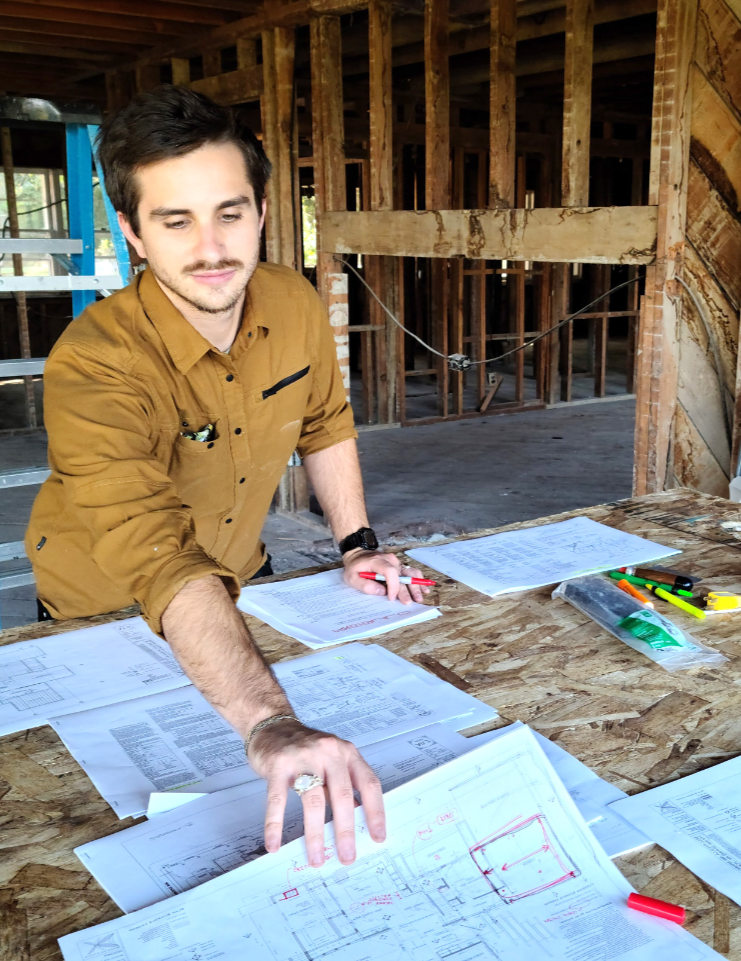Who we are
Daniel + Dana have been friends, collaborators, and design partners since the very beginning of their architecture careers. Together they operate Full Stop Design Studio.
Daniel Keller
is the owner and principal designer at Full Stop Design. He received Bachelors of Architecture from Pratt Institute in New York City, where he completed a thesis that analyzed the links between future resource scarcity and the cultural implications in the built environment. After working as an intern designer in a residential design firm in New York City, he relocated to Portland in 2016.
He is passionate about historic architecture and previously worked in a local Portland preservation and restoration firm. An avid traveler, he has studied Italian architecture, language, and history in Rome, where he has recently competed in an international request for proposals for solutions to Rome’s housing crisis.
He has received numerous awards for his work including: being named Brooklyn’s AIA Scholar in 2015, being awarded the National Professional Fraternity Award For Architecture, The Allied Arts Alpha Rho Chi Medal, and being chosen as the inaugural recipient of the Michael Hollander Award for Drawing Excellence at Pratt Institute School of Architecture.
Dana Floyd
is an architectural designer at Full Stop Design. They received Bachelors of Architecture from Pratt Institute in New York City, where they and Daniel developed their working partnership and design philosophy in tandem through work on their thesis. They the spent 5 years developing skills in architecture, landscape, and public art at Hood Design in Oakland where they worked on projects as large as stadiums and as small as garden benches. They relocated to Portland in 2021 to join the practice.
Dana is passionate about public space and believes everyone deserves access to beautiful and safe spaces. In effort to address the unsafe conditions of those experiencing homelessness, they worked with their unhoused neighbors in the Bay Area to lobby the city of San Francisco to allow interim use of development sites by unhoused people. They feel best when tending to their community, plants, and their cat.


